A Comprehensive Guide to Supplements and Herbs
Depression is a complex and widespread mental health condition affecting more than 17 million adults in the United States alone, with global numbers reaching hundreds of millions. While conventional treatments such as psychotherapy and antidepressant medications remain the foundation of care for clinical depression, many individuals seek complementary approaches to enhance treatment outcomes or address side effects. This comprehensive guide explores the scientific evidence behind various natural supplements and herbs for depression, providing insights into their potential benefits, mechanisms of action, and important considerations for use.
Understanding Depression: Beyond a Simple Chemical Imbalance
Depression is far more than just feeling sad or going through a temporary period of low mood. It involves persistent feelings of sadness, emptiness, or irritability, accompanied by physical and cognitive changes that significantly impair daily functioning. Clinical depression (Major Depressive Disorder) represents just one of several depressive disorders, which also include Persistent Depressive Disorder, Premenstrual Dysphoric Disorder, and others.
The traditional view of depression as simply a “chemical imbalance” has evolved into a more sophisticated understanding that recognizes multiple contributing factors:
- Neurotransmitter dysregulation: Imbalances in serotonin, norepinephrine, dopamine, and other neurotransmitters
- Neuroplasticity issues: Reduced formation of new neurons and neural connections
- Inflammation and immune dysfunction: Elevated inflammatory markers are common in depression
- Hormonal imbalances: Thyroid disorders, cortisol dysregulation, and sex hormone fluctuations
- Gut microbiome disruption: Alterations in gut bacteria affecting brain function
- Genetic vulnerabilities: Numerous genes influence depression risk
- Environmental factors: Trauma, chronic stress, and social determinants of health
This multifaceted understanding of depression opens the door to multiple therapeutic targets, including those that may be addressed through nutritional and herbal interventions.
Evidence-Based Herbal Remedies for Depression
Several herbal supplements have demonstrated antidepressant effects in clinical trials, working through various mechanisms to support mood regulation.
St. John’s Wort (Hypericum perforatum)
St. John’s Wort is one of the most extensively studied herbal remedies for depression. According to the National Institutes of Health, there is evidence it may have benefits for mild to moderate depression in the short term, though results for severe depression are less promising.
The herb appears to work through multiple mechanisms, including inhibiting the reuptake of several neurotransmitters (serotonin, norepinephrine, dopamine, GABA, and glutamate) and reducing inflammation.
While St. John’s Wort shows efficacy comparable to some conventional antidepressants for mild to moderate depression, it comes with important caveats:
- It interacts with many medications, reducing their effectiveness
- It can cause photosensitivity, digestive upset, and other side effects
- It should never be combined with other antidepressants due to risk of serotonin syndrome
For these reasons, St. John’s Wort should only be used under professional guidance and is generally not recommended for those taking other medications.
Saffron (Crocus sativus)
Saffron, derived from the stigma of the Crocus sativus flower, has shown impressive results in clinical trials for depression. Multiple randomized controlled trials have found saffron extracts to be more effective than placebo and comparable to conventional antidepressant medications for mild to moderate depression.
Saffron contains several bioactive compounds, including crocin, crocetin, and safranal, which appear to modulate neurotransmitters, reduce inflammation, provide antioxidant protection, and support brain-derived neurotrophic factor (BDNF) levels.
The typical dose in studies is 30 mg daily of saffron extract, using standardized extracts. While saffron is expensive as a spice, standardized supplements are more affordable. Safety data indicates it’s generally well-tolerated, though high doses may affect blood pressure and should be avoided during pregnancy.
Rhodiola Rosea
Rhodiola rosea is an adaptogenic herb traditionally used to combat fatigue and enhance stress resilience. Research indicates it may be particularly helpful for depression characterized by fatigue and burnout.
One clinical trial found Rhodiola to be helpful for depression, though less effective than the SSRI sertraline (Zoloft). However, given Rhodiola’s minimal side effects, researchers suggested it may be a good option for those with mild to moderate depression, especially when fatigue is prominent.
Rhodiola appears to work by modulating stress hormones, supporting neurotransmitter balance, and protecting neurons from damage. It’s generally well-tolerated, with few reported side effects even at higher doses.
Curcumin
Curcumin, the active component in turmeric, has shown promise for depression in multiple clinical trials. Its powerful anti-inflammatory and antioxidant properties may help address inflammatory aspects of depression.
A meta-analysis of clinical trials concluded that curcumin significantly reduces depression symptoms compared to placebo, with effects comparable to some antidepressant medications in mild to moderate depression.
The challenge with curcumin is its poor bioavailability. Specialized formulations with enhanced absorption, such as those combined with piperine (black pepper extract) or using technologies like liposomal delivery, show better results than standard curcumin supplements.
Lavender (Lavandula angustifolia)
Lavender, particularly in the form of a standardized oral preparation called Silexan, has demonstrated benefits for both anxiety and depression. Several clinical trials have shown lavender extract improving symptoms of depression, often alongside improvements in anxiety and sleep.
Lavender appears to modulate neurotransmitter activity and GABA function while providing neuroprotective effects. It’s generally well-tolerated with minimal side effects, making it an attractive option for individuals with both depression and anxiety symptoms.
Beyond oral supplementation, aromatherapy with lavender essential oil has shown modest benefits for mood in some studies, though these effects are typically short-term and less robust than those seen with oral lavender extracts.
Amino Acids and Precursors
Certain amino acids serve as precursors to neurotransmitters involved in mood regulation and may help alleviate depression symptoms when supplemented.
SAMe (S-Adenosyl-L-Methionine)
SAMe is a naturally occurring compound involved in numerous biochemical processes, including the production of neurotransmitters and the regulation of gene expression. It serves as a methyl donor, supporting methylation processes crucial for brain function.
Multiple clinical trials have found SAMe effective for depression, with some studies showing efficacy comparable to tricyclic antidepressants and SSRIs, but with a faster onset of action (often within days rather than weeks).
SAMe works by supporting the production of neurotransmitters, maintaining cell membrane fluidity, and promoting methylation processes. It may be particularly helpful for individuals with depression related to methylation issues or those not responding to conventional treatments.
While generally safe, SAMe may trigger mania in those with bipolar disorder and should not be combined with other antidepressants without medical supervision due to potential serotonin syndrome risk.
5-HTP (5-Hydroxytryptophan)
5-HTP is an intermediate between tryptophan and serotonin in the serotonin synthesis pathway. Supplementing with 5-HTP provides direct support for serotonin production.
A review of research found evidence that 5-HTP can reduce depression symptoms in some individuals. However, fewer high-quality trials have compared 5-HTP to control groups, so more research is necessary to confirm its effectiveness.
5-HTP appears to work primarily by increasing serotonin levels in the brain. However, when used alone long-term, there are concerns about potential depletion of other neurotransmitters, particularly dopamine, norepinephrine, and epinephrine. For this reason, some practitioners recommend combining it with tyrosine or other catecholamine precursors.
Similar to SAMe, 5-HTP should not be combined with serotonergic medications without medical supervision due to the risk of serotonin syndrome.
N-Acetylcysteine (NAC)
NAC is an amino acid derivative that serves as a precursor to glutathione, a powerful antioxidant in the body. It also appears to modulate glutamate activity, which is often dysregulated in depression.
Research shows that “people with depression are more likely to have higher levels of inflammatory cytokines” and taking NAC may help reduce inflammation and ease depressive symptoms. Multiple clinical trials have found NAC effective as an adjunctive treatment for depression, particularly in cases resistant to conventional treatments.
NAC works through multiple mechanisms, including:
- Restoring glutathione levels and reducing oxidative stress
- Modulating glutamate neurotransmission
- Reducing inflammation
- Supporting mitochondrial function
NAC is generally well-tolerated, even at higher doses, with mild gastrointestinal symptoms being the most common side effect.
Acetyl-L-Carnitine
Acetyl-L-carnitine is a form of carnitine that supports mitochondrial function and energy production within cells. Research shows that patients with depression may have lower levels of acetyl-L-carnitine, and supplementation may significantly reduce depressive symptoms.
Some trials suggest it may be as effective as certain antidepressant medications but with fewer side effects. Animal studies indicate it may work more quickly than conventional antidepressants, potentially offering relief within days rather than weeks.
Acetyl-L-carnitine appears to support energy production in brain cells, promote neuroplasticity, and modulate neurotransmitter systems. It has neuroprotective properties and may help address the metabolic aspects of depression.
Vitamins and Minerals for Depression
Nutritional deficiencies can contribute to depression symptoms, and correcting these deficiencies through supplementation may help improve mental health.
B Vitamins
The B vitamins play crucial roles in brain function, neurotransmitter synthesis, and energy metabolism. Deficiencies in several B vitamins have been linked to increased risk of depression.
Vitamin B1 (Thiamin) supports energy metabolism in brain cells.
Vitamin B6 is essential for the production of neurotransmitters, including serotonin, dopamine, and GABA. Research suggests that B6 may be especially helpful for depression in premenopausal women, potentially due to its role in hormone regulation.
Vitamin B9 (Folate) is crucial for methylation processes and neurotransmitter synthesis. Low folate levels have been associated with poor response to antidepressant medications. A specific form called L-methylfolate may be particularly beneficial, as it crosses the blood-brain barrier more effectively and bypasses genetic variations in folate metabolism that affect approximately 30% of the population.
Vitamin B12 supports myelin formation and neurotransmitter function. B12 deficiency can cause or worsen symptoms like irritability, personality changes, depression, and memory problems. Those at highest risk include older adults, vegetarians and vegans, and individuals with gastrointestinal disorders that affect absorption.
Vitamin D
Vitamin D receptors are widespread throughout the brain, suggesting its importance in neurological function. Low vitamin D levels have been strongly associated with depression in numerous studies.
Vitamin D plays roles in regulating neurotransmitters, reducing inflammation, and supporting immune function, all of which may contribute to its effects on mood. Supplementation appears most effective for those with deficiency, which is extremely common, especially in northern climates, during winter months, or in those with limited sun exposure.
Zinc
Zinc is an essential mineral that serves as a cofactor for more than 300 enzymes in the body and plays crucial roles in neurotransmitter systems and neuroplasticity. Zinc deficiency is associated with increased depression risk, and blood levels of zinc are often lower in individuals with depression.
Clinical trials have found zinc supplementation effective as an adjunctive treatment for depression, particularly when added to antidepressant therapy. It appears to enhance the effectiveness of conventional antidepressants and may help resolve treatment resistance in some cases.
Zinc supports neuroplasticity through its effects on BDNF, modulates glutamate neurotransmission through NMDA receptors, and has anti-inflammatory properties that may address inflammatory aspects of depression.
Magnesium
Magnesium is involved in over 300 enzymatic reactions and plays crucial roles in neurotransmitter function, hormonal regulation, and the body’s stress response. Deficiency is common and has been linked to increased depression risk.
Research shows that magnesium supplementation may reduce symptoms of depression, sometimes quite rapidly. Different forms of magnesium vary in bioavailability and effects on the brain, with magnesium glycinate and magnesium threonate often recommended for mental health due to better absorption and ability to cross the blood-brain barrier.
Chromium
Chromium supports insulin function and glucose metabolism in the body and brain. It also appears to enhance the action of serotonin, potentially offering benefits for mood regulation.
Clinical research has found that chromium may be particularly helpful for atypical depression, which often involves mood reactivity, increased appetite, and carbohydrate cravings. In one trial, patients with atypical depression experienced significant improvement in mood swings, appetite regulation, and carbohydrate cravings with chromium supplementation.
A separate case series found that patients with treatment-resistant depression also experienced dramatic improvement in symptoms and functioning with chromium supplementation. Its effects on insulin sensitivity and glucose regulation may explain these benefits, particularly in depression with metabolic components.
Omega-3 Fatty Acids and Anti-inflammatory Approaches
Inflammation is increasingly recognized as a contributor to depression, with numerous studies showing elevated inflammatory markers in individuals with depression. Anti-inflammatory approaches, including omega-3 fatty acid supplementation, may help address this aspect of the condition.
Omega-3 Fatty Acids
Omega-3 fatty acids, particularly EPA (eicosapentaenoic acid) and DHA (docosahexaenoic acid), are essential for brain structure and function and have potent anti-inflammatory effects.
Research has found that “omega-3 supplements were superior to placebo treatments in reducing depressive symptoms” and “supplements with a higher ratio of EPA to DHA were particularly effective.” Multiple meta-analyses have concluded that omega-3 supplements with high EPA content (typically at least 60% EPA) are effective for depression, though results vary based on depression severity and other factors.
Omega-3s appear to work through multiple mechanisms:
- Reducing neuroinflammation
- Supporting cell membrane fluidity and neurotransmitter receptor function
- Promoting neuroplasticity and BDNF expression
- Modulating the HPA axis (stress response system)
For depression, doses typically range from 1-2 grams of EPA+DHA daily, with higher EPA formulations (at least 1,000 mg of EPA) showing the best results.
Adaptogens and Stress Regulation
Chronic stress can trigger or exacerbate depression through various mechanisms, including effects on the HPA axis, neuroinflammation, and neuroplasticity. Adaptogenic herbs help the body adapt to stress and may offer benefits for depression characterized by stress sensitivity.
Ashwagandha (Withania somnifera)
Ashwagandha is an adaptogenic herb with traditional use in Ayurvedic medicine for stress and anxiety. Research shows it helps reduce cortisol levels and perceived stress, which may indirectly benefit depression, particularly when stress is a significant trigger.
Ashwagandha appears to modulate stress hormones, support GABA activity in the brain, reduce inflammation, and provide neuroprotection through antioxidant effects. It’s generally well-tolerated and may be particularly helpful for depression accompanied by anxiety and sleep disturbances.
Ginseng
Different varieties of ginseng, including Asian ginseng (Panax ginseng) and American ginseng (Panax quinquefolius), have adaptogenic properties that may help with depression and stress management.
While most research on ginseng for depression has involved animal studies rather than human clinical trials, preliminary evidence suggests potential benefits. The active compounds in ginseng, called ginsenosides, appear to modulate the stress response, support neurotransmitter function, and provide neuroprotective effects.
When considering ginseng supplements, it’s important to note that different varieties have slightly different properties. Asian ginseng is generally considered more stimulating and may be better for depression with fatigue, while American ginseng tends to be more calming.
Gut-Brain Axis and Probiotics
The gut-brain axis refers to the bidirectional communication between the central nervous system and the enteric nervous system, including the role of the gut microbiota. Emerging research suggests that gut health may significantly impact mental health, including depression.
Probiotics and Fermented Foods
Probiotics are live microorganisms that, when administered in adequate amounts, confer health benefits to the host. Certain strains of probiotics appear to influence brain function and mental health through various mechanisms, including neurotransmitter production, immune modulation, and vagal nerve signaling.
A systematic review found valuable evidence demonstrating the benefits of probiotics on depression symptoms. The effects appear to be strain-specific, with Lactobacillus and Bifidobacterium species showing the most promise for mental health.
Beyond supplements, consuming fermented foods rich in live cultures (such as yogurt, kefir, sauerkraut, and kimchi) may support a healthy gut microbiome and, by extension, mental health. Combining probiotic supplementation with a diet rich in prebiotic fibers (which feed beneficial gut bacteria) may enhance these benefits.
Digestive Enzymes and Support
Proper digestion ensures optimal nutrient absorption, which is crucial for brain health. Some practitioners suggest that improving digestion with supplements like amylase, bromelain, and papain may indirectly support brain health by ensuring optimal nutrient availability.
While direct evidence for digestive enzymes in depression treatment is limited, optimizing digestive function and nutrient absorption may support overall brain health and function, potentially contributing to improved mental health.
Other Promising Supplements for Depression
Several other supplements have shown potential for depression management through various mechanisms.
Inositol
Inositol is a naturally occurring compound that plays a role in cell signaling and is involved in the action of several neurotransmitters, including serotonin, which is targeted by conventional depression medications.
Clinical trials have found benefits of inositol for depression in some individuals, though results are mixed. It appears most helpful for depression with comorbid anxiety or obsessive-compulsive features.
Inositol requires relatively high doses (typically 12-18 grams daily) for therapeutic effects, which can be a practical limitation. At these doses, mild gastrointestinal side effects like gas and diarrhea are common but typically resolve with continued use.
L-theanine
L-theanine is an amino acid found primarily in green tea leaves. It promotes relaxation without causing drowsiness and has been shown to increase alpha brain wave activity, similar to what occurs during meditation.
While research on L-theanine specifically for depression is still emerging, its anxiolytic properties may help with the anxiety component often present in depression. It appears to work through multiple mechanisms, including effects on GABA, dopamine, and serotonin, as well as neuroprotective and anti-inflammatory actions.
L-theanine is generally very safe, even at high doses, with no significant side effects reported. It may be particularly helpful for depression accompanied by anxiety, tension, or sleep disturbances.
Alpha-Lipoic Acid
Alpha-lipoic acid is a powerful antioxidant that can cross the blood-brain barrier and protect brain cells from oxidative damage. It also helps recycle other antioxidants like vitamins C and E.
Research suggests alpha-lipoic acid may have antidepressant effects, possibly through its anti-inflammatory and antioxidant actions, as well as effects on neurotransmitter systems. It may be particularly beneficial in cases where inflammation and oxidative stress are significant contributors to depression.
Methylfolate
Methylfolate (L-methylfolate) is the active form of folate that can cross the blood-brain barrier and participate directly in neurotransmitter synthesis. Unlike regular folic acid, it bypasses a conversion step that is impaired in many individuals due to genetic variations (particularly in the MTHFR gene).
Clinical trials have found L-methylfolate effective as an adjunctive treatment for depression, particularly in individuals who haven’t responded adequately to antidepressants alone. It appears most beneficial for those with specific genetic variations affecting folate metabolism, which may affect up to 30% of the population.
Botanical Compounds and Extracts
Various botanical compounds and extracts show promise for supporting mood and addressing depression through different mechanisms.
Ginkgo Biloba
Ginkgo biloba has been used in traditional Chinese medicine for centuries and is known for its effects on circulation and cognition. Research suggests it may also have benefits for mood disorders, potentially through effects on neurotransmitters, blood flow to the brain, and neuroprotection.
Clinical trials examining ginkgo for depression have shown modest benefits, particularly when depression co-occurs with cognitive complaints or in older adults. Its effects on cerebral blood flow and cognition may make it particularly suitable for depression in the elderly or depression with cognitive symptoms.
Olive Leaf Extract
Olive leaf extract contains oleuropein and other polyphenols with anti-inflammatory and antioxidant properties. While specific research on olive leaf extract for depression is limited, its anti-inflammatory effects may address inflammatory aspects of depression.
Additionally, animal studies suggest potential effects on neurotransmitter systems involved in mood regulation. More research is needed to confirm these benefits in humans with depression.
Grape Seed Extract
Grape seed extract is rich in proanthocyanidins and other polyphenols with potent antioxidant and anti-inflammatory properties. These compounds can cross the blood-brain barrier and exert neuroprotective effects.
Research on grape seed extract specifically for depression is still emerging, but animal studies suggest antidepressant-like effects, possibly through modulation of neurotransmitters, reduction of oxidative stress, and anti-inflammatory actions.
Plant-Based Superfoods for Depression Support
Several plant-based superfoods contain concentrated nutrients and bioactive compounds that may support brain health and help alleviate depression.
Spirulina and Chlorella
These blue-green algae are nutrient powerhouses, containing protein, B vitamins, minerals, and various phytonutrients. They have anti-inflammatory and antioxidant properties that may support brain health.
While clinical studies specifically on these algae for depression are limited, their comprehensive nutrient profiles and effects on inflammation make them potentially supportive options as part of a holistic approach to depression management.
Spinach Leaf and Peppermint Leaves
Leafy greens like spinach are rich in folate, magnesium, and other nutrients important for brain health and neurotransmitter synthesis. Peppermint contains compounds that may help reduce stress and improve mental clarity.
These plants provide various phytonutrients with antioxidant and anti-inflammatory properties that may support overall brain health, though specific research on their effects on clinical depression is limited.
Bee Products and Bee Pollen
Royal jelly and bee pollen contain unique compounds and concentrated nutrients that may support brain health. Animal studies suggest potential benefits for depression, possibly through effects on neurotransmitters and neuroinflammation.
While human studies specifically on bee products for depression are limited, these nutrient-dense foods provide various bioactive compounds that may support overall brain health and function.
The Role of Minerals and Trace Elements
Beyond the major minerals already discussed (zinc, magnesium), several trace elements and other minerals may play important roles in depression.
Lithium (Low-Dose)
While high-dose lithium is a well-established treatment for bipolar disorder, low-dose lithium (often called nutritional lithium) has gained interest for its potential benefits for mood stability and neuroprotection.
Nutritional lithium is typically taken at doses similar to what might be consumed from mineral-rich food and water (0.3-5 mg), rather than the much higher pharmaceutical doses (300-1800 mg). At these low doses, it appears safe and well-tolerated, with beneficial effects for mental health.
The mechanisms of lithium’s mood-stabilizing effects include modulation of neurotransmitters, effects on second messenger systems, neuroprotection, and enhancement of neuroplasticity. Some research also suggests lithium may reduce suicide risk, even at very low doses.
Iodine
Iodine is essential for thyroid hormone production, and thyroid function is closely linked to mood and energy. Hypothyroidism, even in subclinical forms, can cause or exacerbate depression symptoms.
While iodine supplementation is primarily beneficial for those with deficiency or suboptimal thyroid function, ensuring adequate iodine intake may support mood indirectly by optimizing thyroid hormone production.
Other Trace Elements
Various other trace elements play roles in brain function and may influence depression:
- Selenium supports thyroid function and has antioxidant properties
- Copper is involved in neurotransmitter synthesis
- Iron is essential for dopamine production and oxygen transport
- Molybdenum supports detoxification pathways that may indirectly affect brain function
Deficiencies in these trace elements can contribute to depression symptoms in some individuals, and targeted supplementation based on testing may be beneficial.
Integrative Approaches to Depression Management
For optimal results, supplements should be part of a comprehensive approach to depression management that may include:
- Evidence-based psychotherapy: Cognitive-behavioral therapy (CBT), interpersonal therapy, and other forms of psychotherapy have strong evidence for depression and should typically be considered first-line treatments.
- Mind-body practices: Meditation, yoga, tai chi, and deep breathing exercises can help reduce stress, support neuroplasticity, and complement other treatments for depression.
- Lifestyle modifications: Regular physical activity, adequate sleep, stress management, exposure to natural light, social connection, and a balanced diet all contribute to better mood regulation and may enhance the effectiveness of other interventions.
- Targeted supplementation: Based on individual needs, deficiencies, and symptoms, specific supplements may be added to support overall brain health and potentially enhance the effects of other treatments.
- Conventional medication when appropriate: For moderate to severe depression, conventional antidepressant medications may be necessary and can often be safely combined with natural approaches under proper medical supervision.
Practical Considerations for Supplement Use
When considering supplements for depression, several important factors should be taken into account:
Quality and Standardization
The supplement industry is less regulated than pharmaceuticals, leading to variability in product quality and potency. Choose products from reputable manufacturers that undergo third-party testing for quality, purity, and potency. Look for standardized herbal extracts that contain specified amounts of active compounds.
Dosage and Timing
Effective doses vary widely between supplements and individuals. Start with lower doses and gradually increase as needed and tolerated. Some supplements work better when taken at specific times of day—for example, energizing supplements in the morning and calming ones in the evening.
Individual Factors
Consider personal factors such as:
- Current medications and potential interactions
- Existing health conditions that may affect metabolism or safety
- Personal sensitivity to supplements
- Specific depression symptoms and subtypes
- Genetic factors that may influence response to certain compounds
Professional Guidance
While many supplements can be safely self-administered, consulting with knowledgeable healthcare providers is strongly recommended, especially for:
- Moderate to severe depression
- Complex health conditions
- Those taking multiple medications
- Pregnancy or breastfeeding
- Children and adolescents
Functional medicine practitioners, naturopathic doctors, integrative psychiatrists, and clinical herbalists may offer specialized expertise in natural approaches to depression management.
Potential Side Effects and Interactions
While natural doesn’t always mean safe, most supplements discussed in this article have favorable safety profiles compared to many pharmaceutical options. However, potential risks include:
- Herb-drug interactions: Many herbs can interact with medications, either reducing their effectiveness or increasing side effects. For example, St. John’s Wort interacts with numerous medications through effects on liver enzymes.
- Serotonin syndrome risk: Combining serotonergic supplements (like 5-HTP, SAMe, or St. John’s Wort) with serotonergic medications can lead to serotonin syndrome, a potentially serious condition characterized by agitation, confusion, rapid heart rate, and elevated temperature.
- Individual sensitivities: Some people may experience allergic reactions or unexpected side effects to herbs or supplements that are generally well-tolerated.
- Quality concerns: Contamination, adulteration, or mislabeling can lead to unintended exposure to harmful substances or inconsistent dosing.
- Overreliance on supplements: Using supplements as the sole approach to severe depression may delay appropriate treatment and allow symptoms to worsen.
Always discuss supplement use with healthcare providers, especially when taking prescription medications or managing chronic health conditions.
Conclusion
Natural supplements and herbs offer promising complementary approaches for many individuals struggling with depression. From adaptogenic herbs that help the body manage stress to specific nutrients that support neurotransmitter function and herbs with demonstrated antidepressant effects, these natural options target multiple pathways involved in depression pathophysiology.
While conventional treatments like psychotherapy and medication remain important options, particularly for severe depression, integrating evidence-based natural approaches may enhance outcomes and provide additional tools for comprehensive depression management. The growing research in this field continues to expand our understanding of how natural compounds can support mental health and well-being.
For more comprehensive information on specific supplements mentioned in this article, visit the Dictionary of Supplements and Herbs for Mental Health, which provides detailed insights into numerous natural remedies and their potential benefits for psychological wellbeing.
For more information on supplemens for mental health consult our comprehensive guide for micronutrient and supplement therapy and how it can treat specific issues and enhance certain modalities of therapy.
If you’re interested in exploring micronutrient therapy as part of your anxiety treatment plan, Hardy Nutritionals offers a range of products to fit your specific needs. Their Daily Essential Nutrients clinical strength formula provides comprehensive, research-backed dosages in convenient capsule or powder form.
For 15% off in savings, use the offer code “Taproot” at checkout on the Hardy Nutritionals website to receive 15% off your order. @ GetHardy.com
It’s important to remember that while micronutrient therapy can be a powerful tool for managing anxiety, it is not a replacement for professional mental health care. Always consult with a qualified healthcare provider before starting any new supplement regimen, particularly if you have pre-existing health conditions or are taking medications.
Disclaimer: These statements have not been evaluated by the Food and Drug Administration. These products are not intended to diagnose, treat, cure, or prevent any disease. Please consult with a qualified healthcare professional before beginning any supplement regimen, particularly if you are pregnant, nursing, have a medical condition, or are taking medications. The information on this website doesnot constitute medical advice. We recieve a small commision on sales with Hardy Nutritionals through our offer code. Our affiliation does not effect treatment or recomendations made by Taproot authors, therapists or other staff.
Bibliography
- Amsterdam JD, Panossian AG. (2016). Rhodiola rosea L. as a putative botanical antidepressant. Phytomedicine, 23(7):770-83.
- Anghelescu IG, Edwards D, Seifritz E, Kasper S. (2018). Stress management and the role of Rhodiola rosea: a review. International Journal of Psychiatry in Clinical Practice, 22(4):242-252.
- Berk M, Williams LJ, Jacka FN, O’Neil A, Pasco JA, Moylan S, Allen NB, Stuart AL, Hayley AC, Byrne ML, Maes M. (2013). So depression is an inflammatory disease, but where does the inflammation come from? BMC Medicine, 11:200.
- Gowda U, Mutowo MP, Smith BJ, Wluka AE, Renzaho AM. (2015). Vitamin D supplementation to reduce depression in adults: meta-analysis of randomized controlled trials. Nutrition, 31(3):421-9.
- Grosso G, Pajak A, Marventano S, Castellano S, Galvano F, Bucolo C, Drago F, Caraci F. (2014). Role of omega-3 fatty acids in the treatment of depressive disorders: a comprehensive meta-analysis of randomized clinical trials. PLoS One, 9(5)
.
- Hausenblas HA, Saha D, Dubyak PJ, Anton SD. (2013). Saffron (Crocus sativus L.) and major depressive disorder: a meta-analysis of randomized clinical trials. Journal of Integrative Medicine, 11(6):377-83.
- Linde K, Berner MM, Kriston L. (2008). St John’s wort for major depression. Cochrane Database of Systematic Reviews, (4)
.
- Lopresti AL, Hood SD, Drummond PD. (2012). Multiple antidepressant potential modes of action of curcumin: a review of its anti-inflammatory, monoaminergic, anti-oxidant, immune-modulating and neuroprotective effects. Journal of Psychopharmacology, 26(12):1512-24.
- Lopresti AL, Maes M, Maker GL, Hood SD, Drummond PD. (2014). Curcumin for the treatment of major depression: a randomised, double-blind, placebo controlled study. Journal of Affective Disorders, 167:368-75.
- Ng QX, Koh SSH, Chan HW, Ho CYX. (2017). Clinical Use of Curcumin in Depression: A Meta-Analysis. Journal of the American Medical Directors Association, 18(6):503-508.
- Papakostas GI, Mischoulon D, Shyu I, Alpert JE, Fava M. (2010). S-adenosyl methionine (SAMe) augmentation of serotonin reuptake inhibitors for antidepressant nonresponders with major depressive disorder: a double-blind, randomized clinical trial. American Journal of Psychiatry, 167(8):942-8.
- Sarris J, Murphy J, Mischoulon D, Papakostas GI, Fava M, Berk M, Ng CH. (2016). Adjunctive Nutraceuticals for Depression: A Systematic Review and Meta-Analyses. American Journal of Psychiatry, 173(6):575-87.
- Sublette ME, Ellis SP, Geant AL, Mann JJ. (2011). Meta-analysis of the effects of eicosapentaenoic acid (EPA) in clinical trials in depression. Journal of Clinical Psychiatry, 72(12):1577-84.

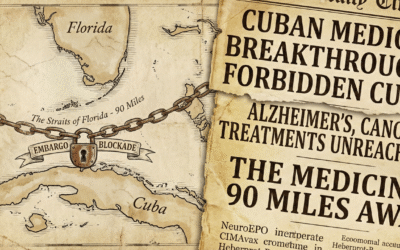
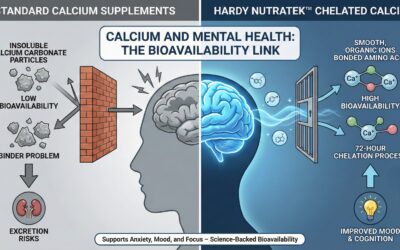
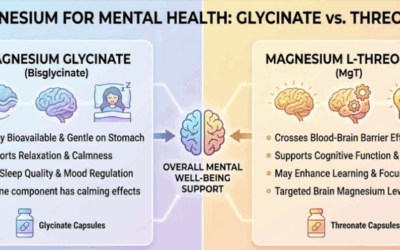

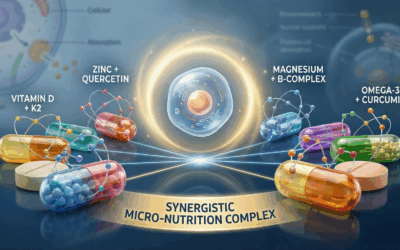
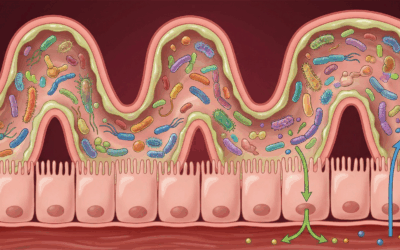



















0 Comments